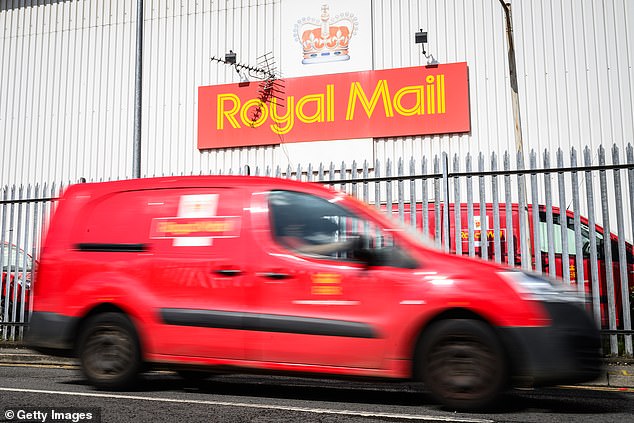The “critical risk” posed to Britain by Thames Water’s dire financial situation may seem to have little to do with Royal Mail.
The Labour administration, which presents itself as a bastion of stability, must deliver on its stated promise to “examine in depth” the £3.6bn bid for Royal Mail owner International Distribution Services (IDS) without delay.
Failure to do so would see Royal Mail taken over by Daniel Kretinsky, his Slovakia-based backers J&T and a consortium of foreign banks. City advisers have more than a passing interest in the sale going ahead, with £146m in fees at stake.
The determination of Barclays, Goldman Sachs and other investment bankers advising IDS, or of the bidding banks led by JP Morgan, to close the deal and boost earnings and bonuses should never be underestimated.
Rush: Labour manifesto vows to ‘thoroughly examine’ £3.6bn bid for Royal Mail owner International Distribution Services without delay
Whatever commitments are made in the course of an acquisition, they become much more difficult to enforce once the company has disappeared from the public markets.
Just as Ofwat has never managed to lay a glove on the owners of Thames Water, Ofcom will face the enormous task of ensuring the preservation of the Universal Service Obligation once ownership has passed abroad.
Similarly, it will be difficult to control the fate of the 112,000-strong workforce.
What should worry Trade Secretary Jonathan Reynolds and Chancellor Rachel Reeves is the balance sheet of the IDS.
Thames Water’s £15.2bn debt pile (£1.3bn more than in 2023) shows how debt-driven deals lead to reduced investment and desperate financial crises.
By the time the day of reckoning arrives, the investment bankers who brokered the deals have already retired to their yachts.
Royal Mail already has £2bn of debt. If the deal goes ahead, this debt would increase by £2.95bn, of which around £1bn is described as interim funding.
Interest on the debt will be paid to a consortium of foreign banks led by BNP Paribas before Kretinsky and his supporters reap the rewards.
The Labour Party must stop this deal, sack a pathetically weak board headed by Keith Williams and demand that the company sort out its own problems. The keys must not be handed over to a foreign marauder.
Thing of vision
Tony Blair represents a different generation of Labour, but his think tank is right. However helpful Rachel Reeves’ planning reforms may be in encouraging growth, they are an outdated way of thinking.
The Tony Blair Institute (TBI) recognises that artificial intelligence is the real future if the UK is to unlock public services and growth.
Shadow Chancellor Jeremy Hunt acknowledged as much when he earmarked £3.4bn over three years for the digital transformation of the NHS. It will be fascinating to see whether Reeves sticks to his position.
There may well be a role for the new National Wealth Fund, which is being allocated an extra £7.3bn through projects identified by the UK Infrastructure Bank.
The TBI estimates that early adoption of AI in the public sector could save £10 billion in time and money over the next five years and £35 billion over a decade.
Equally important, it would also mean empowering the UK’s AI innovators, the most advanced in Europe.
It would reduce the risk of being absorbed by American tech giants.
Rachel was inspired
Finally, a good article on the United Kingdom from the eternal doomsayers at the New York Times.
Rachel Reeves is being hailed as Britain’s first female finance minister and a disciple of US Treasury Secretary Janet Yellen. High praise indeed.


